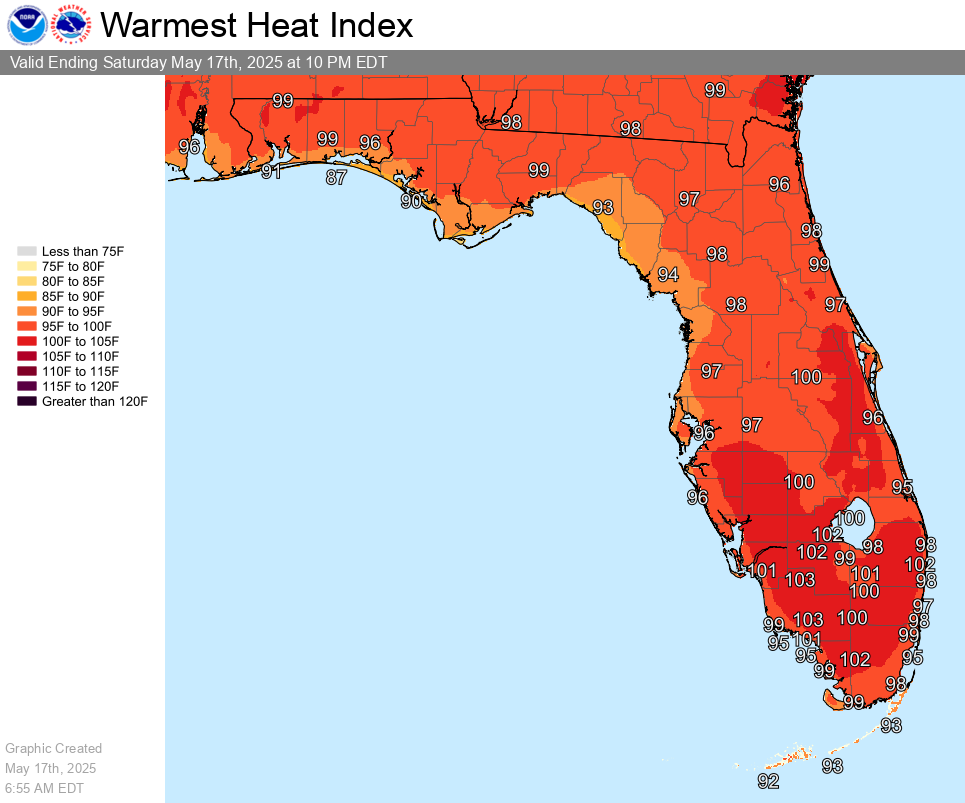
National Weather Service forecast map showing the warmest heat index across Florida on Saturday, May 17th, 2025, at 10 PM EDT, with triple-digit values expected in many inland areas.
ORLANDO, Florida – A heat wave will drive Florida’s heat index into triple digits this weekend and early next week, according to the National Weather Service.
On Saturday, May 17, 2025, inland areas east of Orlando in Central Florida will see heat indices of 100°F, while Southwest Florida’s interior, west of Sarasota, Fort Myers, and Naples, and most of inland South Florida will also hit triple digits.
Coastal areas, including Miami, Fort Lauderdale, Tampa Bay, and Jacksonville, will experience heat indices in the upper 90s. The lowest values, around 87-90°F, will be along the beaches of Destin and Panama City Beach in the Florida Panhandle.
By Sunday and Monday, May 18-19, 2025, heat indices in Central Florida around Tampa and Orlando will climb higher, reaching 101-103°F, with South Florida seeing up to 104°F.
Across the U.S. Gulf Coast, above-average and potentially record-breaking temperatures are forecast to persist, according to the National Weather Service Weather Prediction Center.
Widespread highs in the 90s are expected, with mid-to-upper 90s in southern/southeastern Texas and the Florida Peninsula, where several daily records may be broken by the heat wave.
Take action when you see symptoms of heat exhaustion and heat stroke.
To reduce risk during outdoor work, the Occupational Safety and Health Administration recommends scheduling frequent rest breaks in shaded or air conditioned environments.
Anyone overcome by heat should be moved to a cool and shaded location. Heat stroke is an emergency! Call 9 1 1.
Copyright 2023-2025 FloridaWord.com